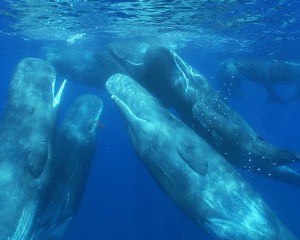What if the second year of the social movement in the U. S. was more radical than the first because it concentrated on social change by means of mutual aid? The direct democracy that attracted so much attention last autumn was not in fact particular to Occupy, although it was new to those like myself who had not been involved in the global justice movement. This movement also practiced, as many alternative groups have done, mutual aid as a means of self-sustaining, while also advocating it as a tactic. Perhaps seen in the wider frame, the implications of mutual aid are more radical still.
To be clear, I am not arguing for passivity and I am not against direct action. I am saying we need to challenge not just the economic results of neo-liberal capital but the basic cultural assumptions on which it is predicated.
It was the second year of the French Revolution that really made it unpopular with the world’s bourgeoisie. It was the year of the price maximum, of the abolition of colonial slavery, of the end of aristocracy. In order to make people forget that radicalism, history has concentrated on violence, forgetting the spectacular torture of the monarchical state and slavery to concentrate on the guillotine, which was in fact designed to minimize physical pain. Lost in this discussion was the possibility of a society based on equality as a fundamental principle, rather than the freedoms of the market.
This should not be unfamiliar, even if the historical details are new. What the police in the broad sense try to do is to turn all new forms of dissent into a question about violence. Even and especially when the movement is non-violent, as with the Civil Rights Movement or Occupy.
The classic source for discussions about mutual aid is Kropotkin’s 1902 treatise of that name. He argued against the Social Darwinists of the period like Thomas Huxley that Darwin’s concept of the “survival of the fittest” did not entail a violent struggle within or even across species. As he put it:
We have heard so much lately of the “harsh, pitiless struggle for life,” which was said to be carried on by every animal against all other animals, every “savage” against all other “savages,” and every civilized man against all his co-citizens — and these assertions have so much become an article of faith — that it was necessary, first of all, to oppose to them a wide series of facts showing animal and human life under a quite different aspect.
Again, our own era of evolutionary biology and neo-liberal economics takes the “war of all against all” as a given for all analysis. Often this gets reduced to the concept of genetics as the only conduit for information in non-human species. It may again be necessary to show human and non-human life under different aspects.
One of the most striking examples can be seen in the observation of sperm whales by a scientific team led by Hal Whitehead, from which we learn not only that whales are capable of altruism and mutual aid but they do so because they have culture. As Whitehead tells it:
I was studying a group of whales off the Galápagos Islands, looking at their social systems, and found two kinds of sperm whale who were behaving really quite differently. They had different ways of communicating with each other, different ways of using the resources around the island, etc. The initial explanation was that we had two sub-species but there was virtually no difference genetically. So something else was causing these sperm whales to form radically different societies, with radically different ways of behaving. It became obvious that the only explanation was that these whales had different cultures.
Whitehead doesn’t try and draw wider implications but it’s clear that many other forms of non-human from insects to felines and apes have similar forms of culture and mutual aid.
So much of U. S. culture depends on violence as a fundamental organizing principle. We hear Tennyson’s aphorism “nature red in tooth and claw” endlessly quoted as if it were universally accepted, while forgetting that it was written in a poem called “In Memoriam,” written in mourning for Arthur Hallam to whom Tennyson had an intensely homoerotic attachment. Which is just to say, the line says nothing about evolution or the natural.
In short: the market is not “natural.” What we call “nature” is not founded on principles of violent competition. Humans are not that special. Let’s just look after each other. How did we ever get to a place where that seems radical?

